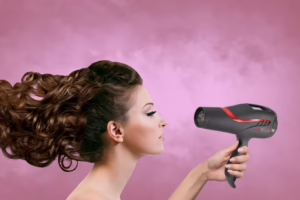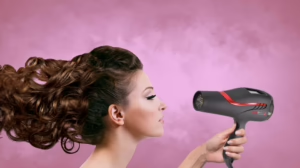How to Communicate Your Ideal Haircut to Your Barber
Getting a haircut can be both exciting and nerve-racking. You might have a vision in your mind of how you want your hair to look, but articulating that vision to your barber can often be a challenge. Regardless of the type of haircut you’re after—whether it’s a simple trim, a bold style change, or something in between—effective communication is key. This article will explore how you can clearly convey your ideal haircut to your barber, ensuring that you leave the salon satisfied with your new look.
Understanding Your Hair Type
Before you even step into the barbershop, it’s essential to have a basic understanding of your hair type. Hair can generally be classified into several categories: straight, wavy, curly, coily, or frizzy. Each hair type has its unique characteristics that may affect how certain hairstyles look and hold.
1. Assess Your Hair’s Texture and Thickness
- Texture: Is your hair coarse, fine, or medium? Fine hair may require more volume and layering, while coarse hair may need less layering for balance.
- Thickness: Thin hair might benefit from styles that create the illusion of volume, whereas thick hair can handle more weight and structure.
Understanding these characteristics will help you choose a haircut that not only looks good but is also manageable for your hair type.
2. Evaluate Your Hair Growth Patterns
Hair growth patterns, such as cowlicks and whorls, can affect how a haircut sits or styles. Recognizing these patterns allows you to choose styles that work with your hair’s natural tendencies, rather than against them.
Do Your Homework: Research Hairstyles
In the age of the internet, an abundance of resources are available for hairstyle research.
1. Use Social Media Platforms
Platforms like Instagram and Pinterest are excellent for discovering the latest trends in haircuts. When you find a style you like, save the image to show your barber.
Tips for Social Media Research:
- Hashtags: Use hair-specific hashtags (like #menshair or #womenshair) to find inspiration.
- Influencers: Follow hair influencers who regularly post haircut styles that interest you.
2. Create a Visual Mood Board
A mood board can be a powerful tool in communicating your desired hairstyle. You can create a digital board using online tools or a physical board with printed images.
Include:
- Different angles of the hairstyle
- Variations in length
- Specific details like fades or texturing techniques
Use Precise Language
While pictures are valuable, using precise language can further enhance your communication with your barber. Clear descriptions can make a significant difference.
1. Avoid Ambiguities
Instead of saying you want a “short” haircut, specify how short. Terms like “buzz,” “fade,” or “crew cut” provide context to your request.
2. Incorporate Barbershop Terminology
Familiarize yourself with common barbershop terms, such as:
- Fade: A gradual transition from short to long hair.
- Layering: Cutting hair at different lengths to create volume.
- Texturizing: Thinning hair out to remove bulk and add movement.
Using these terms will communicate your desires more effectively.
3. Discuss Maintenance
Communicate how much maintenance you are willing to commit to. If you’re looking for a low-maintenance style, inform your barber so they can recommend suitable cuts.
Schedule a Consultation
If you’re uncertain about your desired style, consider scheduling a consultation with your barber. Many professional barbers offer this service to discuss hairstyles without committing to a haircut.
1. Prepare Questions
During the consultation, prepare a list of questions, such as:
- What styles suit my face shape?
- How can I style my hair at home?
- What products do you recommend for this cut?
2. Listen to Your Barber’s Expertise
A good barber will provide feedback and suggestions based on their professional experience. Be open to their advice, as they may offer valuable insights that align with your hair type and lifestyle.
Communicate During the Haircut
Once you’re in the chair, continue your communication flow.
1. Use Descriptive Feedback
As your barber begins cutting, don’t hesitate to provide feedback. Use phrases like:
- “I’d like more off the top.”
- “Could you blend that a bit more?”
- “Can we go shorter on the sides?”
2. Ask Questions
Don’t be shy about asking questions during the process. Questions like:
- “What are you doing next?”
- “How does this look?”
can help ensure you’re on the same page.
Visual Aids: Bring an Image or Two
The saying “a picture is worth a thousand words” holds true in barbershops. Bringing a few images can bridge the communication gap.
1. Continuous Reference
Have images on hand during your appointment. If you feel uncertain at any point, show your barber the images as a reference.
2. Show Different Angles
Consider bringing images that showcase the desired haircut from various angles. This provides a comprehensive view and helps eliminate confusion.
Be Honest About Your Previous Haircuts
If you have had experiences—good or bad—be sure to share these with your barber. Mention specific aspects you liked or didn’t like.
1. Describe Your Previous Cuts
Be candid about what worked or didn’t work in past hairstyles. This information helps your barber tailor the new cut to your preferences.
The Importance of a Good Barber-Client Relationship
Building rapport with your barber can significantly enhance your haircut experience.
1. Consistency Matters
Visiting the same barber consistently allows for a deeper understanding of your hair type and personal style. This familiarity leads to more satisfactory results.
2. Mutual Respect
Treat your barber with respect; they’ll appreciate your feedback and will be more invested in getting it right for you.
Aftercare and Styling Tips
Once you have your ideal haircut, understand that styling is crucial to maintain the look.
1. Learn Styling Techniques
Ask your barber for tips and tricks about how to style your new haircut. They may recommend specific products or methods of use.
2. Invest in Quality Products
Choosing the right products for your hair type can significantly impact your haircut’s appearance. Discuss options with your barber to find what works best for you.
Conclusion
Communicating your ideal haircut to your barber doesn’t have to be a daunting task. Understanding your hair type, doing proper research, using precise language, and building a good relationship with your barber can lead to excellent results. Don’t forget the importance of honest feedback and aftercare! With these tips in mind, your next haircut experience can be both satisfying and enjoyable. Whether you’re going for a dramatic change or just a trim, clear communication is the foundation of a successful barber-client relationship.
References
By taking the time to articulate your vision clearly and comprehensively, you’re setting yourself up for a haircut that not only meets but exceeds your expectations!


























Add Comment